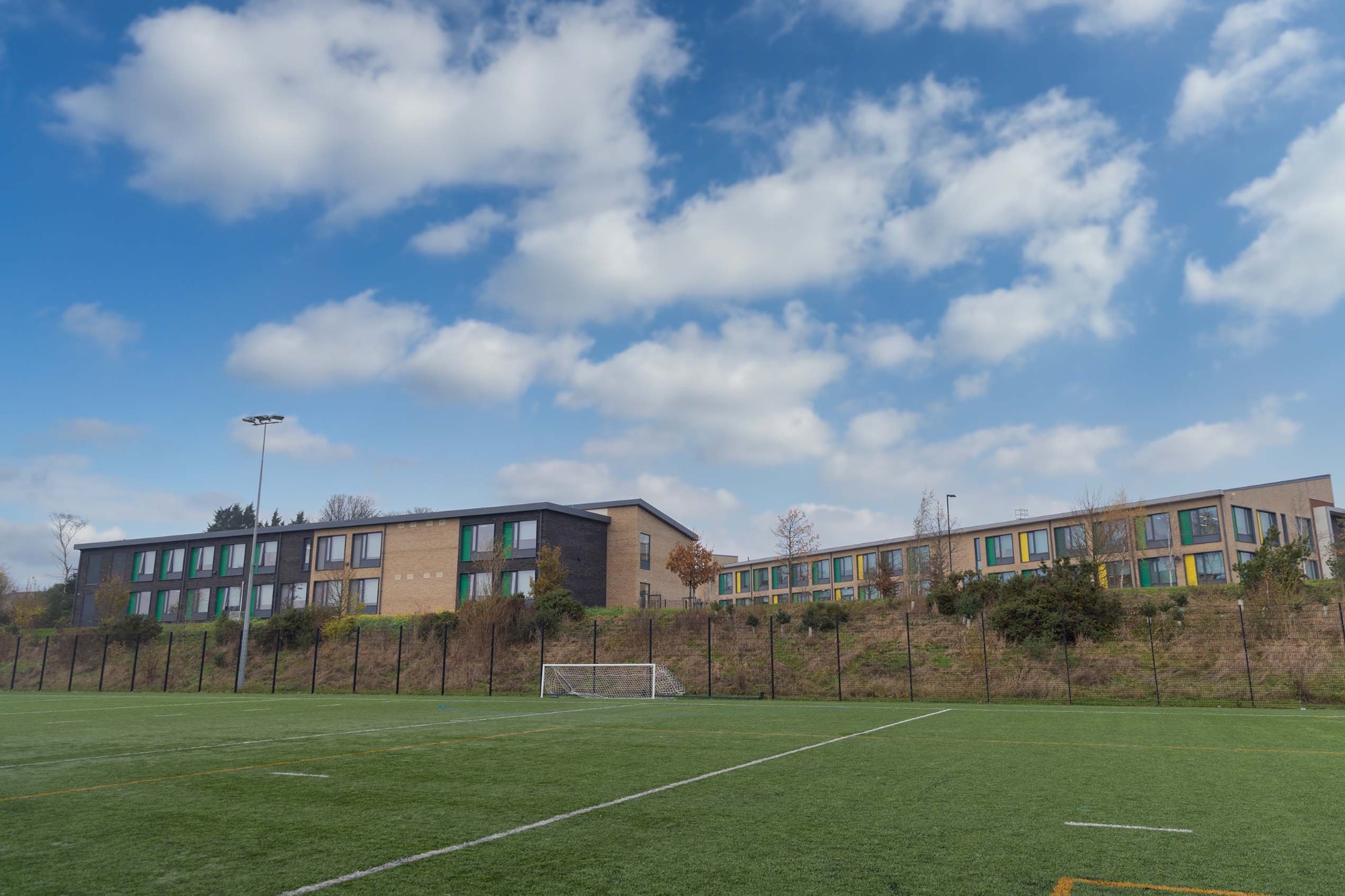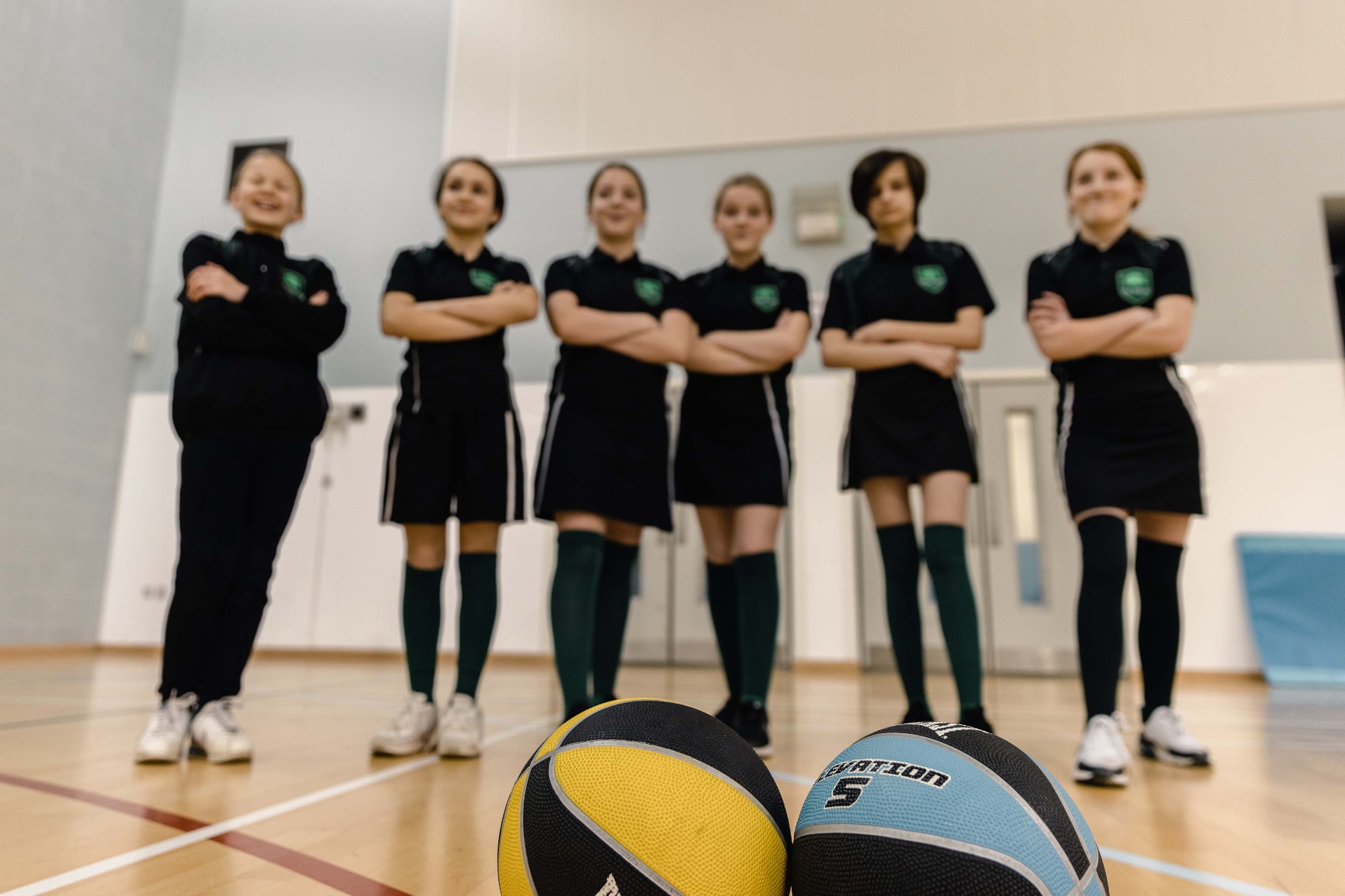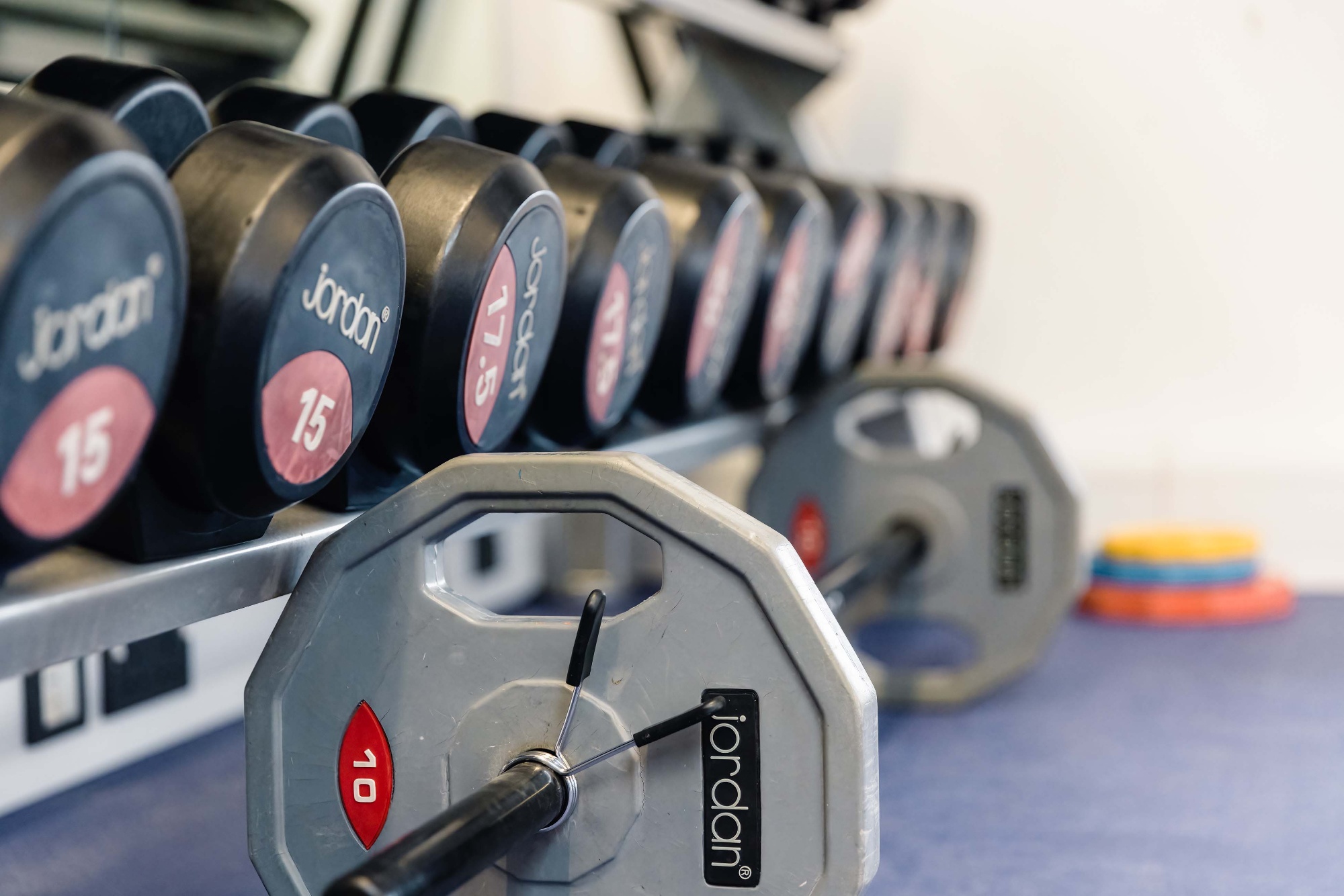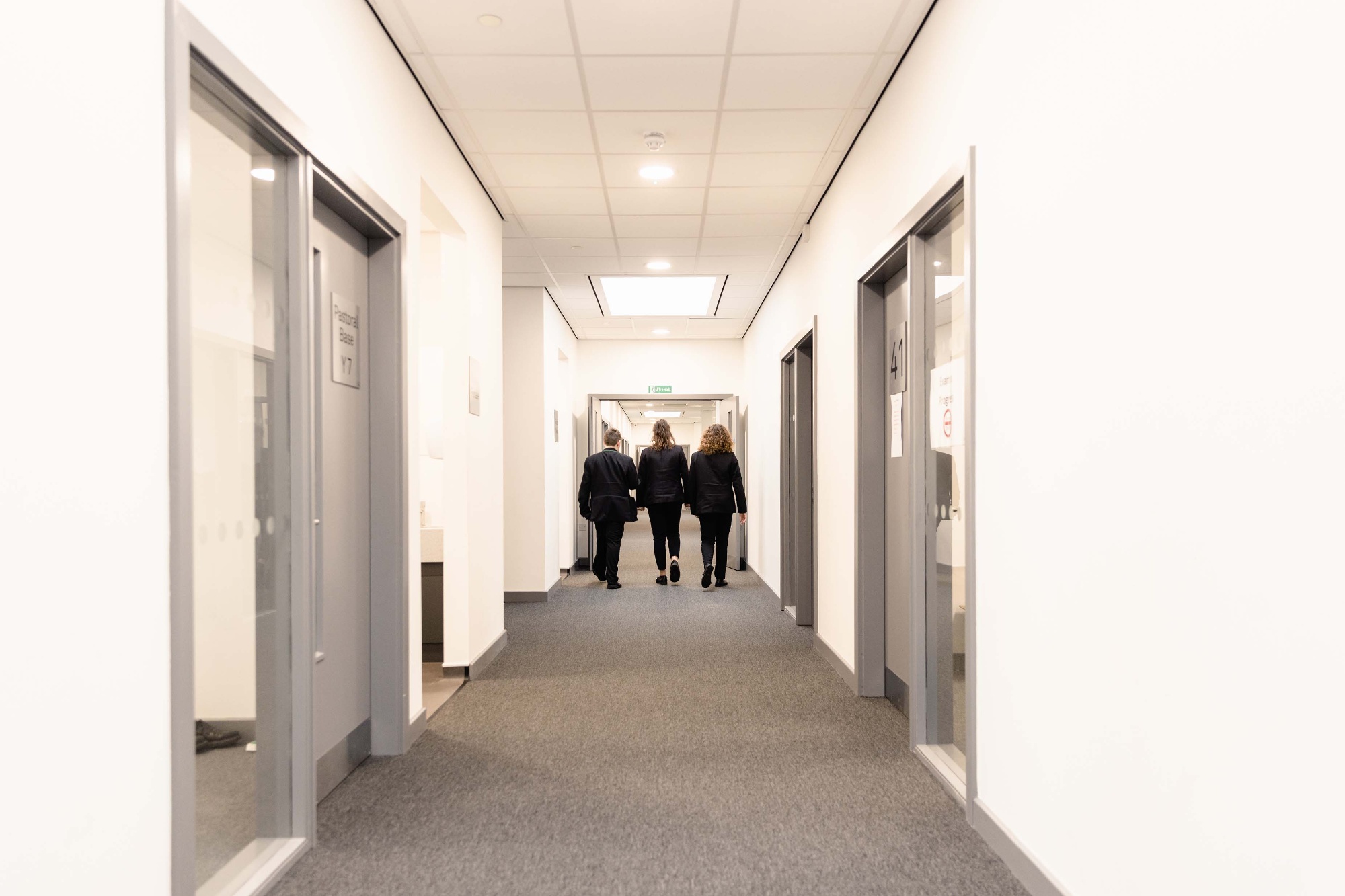.
Year 7
Autumn Term – Elements of Music.
Pupils will learn about the Elements of Music: PITCH, TEMPO, DYNAMICS, DURATION, TEXTURE, TIMBRE or SONORITY, ARTICULATION, SILENCE and are introduced to Graphic Notation and Graphic scores. The unit will develop students understanding of the Elements of Music and will provide a foundation of musical vocabulary for use at Key Stage 3.
Spring Term – Instruments of the Orchestra.
Students will develop their knowledge and understanding of orchestral instruments and families of orchestral instruments. They will learn about the construction, sound production and timbre/sonorities of different orchestral instruments and will perform as a ‘class orchestra’.
Summer Term – Form and Structure.
Students learn what ‘Form and Structure’ is in music and why it is important. Through performing, composing, improvising and listening and appraising, students then explore four different musical structures: Question and Answer Phrases, Binary Form, Ternary Form and Rondo Form.
Year 8
Autumn Term – Ukulele Skills.
Students are introduced to the Ukulele as an instrument, they learn performance skills on the instrument both as a soloist and within an ensemble. Students will learn to read basic notation – reading chord diagrams and reading TAB and will be introduced to chords C, Am, F and G. Students will learn that different strumming patterns create different moods for different songs.
Spring Term – Theme and Variation.
Students explore basic ways to vary an existing theme using the elements of music and simple musical devices. They will develop a knowledge and understanding of how the Elements of Music can be used and manipulated as a basic form of musical variation.
Summer Term – Music for Ensemble.
Through performing, composing, improvising and listening and appraising tasks students will learn about different music for ensembles. Students will look at Chamber Music, Musical Theatre, Jazz and Blues, sonority, timbre and texture.
Year 9
Autumn Term – Hooks and Riffs.
Students explore music based on repeated musical patterns through the genres of Popular Music (Hooks and Riffs) and Music from the Western Classical Tradition (Ostinatos). Students will perform, create, listen to and appraise a range of music from different times and places based on repeated musical patterns.
Spring Term – What makes a good song?
Students will explore popular songs and musical arrangements. Students will learn the importance of hooks/riffs, structure, melody and lyrics through listening and analysis and performing parts of each song as short musical arrangements. Lead sheet notation is used throughout this unit and students are encouraged to confidently navigate around lead sheets evaluating what musical information is, and is not, included in this form of notation.
Summer Term – Film and Video Game Music.
The focus of this unit is creating and composing using music technology. The unit begins with an introduction into the purpose of film and video game music and the decisions and challenges a composer of films or video game music faces. Students explore how composers manipulate the elements of music to represent certain characters and situations. Students critically engage with a range of music through listening and appraising, together with some performing activities of famous themes and leitmotifs.
Year 10
Autumn Term – Area of Study 1 Musical Forms and Devices, Composition Coursework.
Students explore how forms and devices are of fundamental importance in musical composition, and how many of the common musical forms and devices used by composers today have their origin in the Western Classical Tradition. Students explore binary, ternary, minuet and trio, rondo, variation and strophic forms within music from the Baroque, Classical and Romantic eras, through a range of performing, composing and appraising activities. Students are encouraged to make links between the music they listen to, pieces they perform and their own compositions, as well as music by composers from the twentieth and twenty-first centuries who use these forms and devices.
Spring Term – Area of Study 4 Popular Music, Set work 2 analysis, Performance Coursework.
Through this area of study students explore the musical idioms associated with a variety of popular music, and they will have the opportunity to perform popular music as well as compose music associated with a popular music genre. Students use music technology, understanding the impact this has on the way music is developed and performed in popular music.
Summer Term – Area of Study 2 Music for Ensemble, Composition Coursework, Performance Coursework, Set Work 1 analysis.
Music for ensemble forms the basis for a study of texture and sonority. Through a study of diverse musical styles composed for ensemble, such as jazz and blues, musical theatre and chamber music, students consider how music is composed for small groups of instruments and voices. Students will also consider how texture is manipulated and they are encouraged to use small instrumental/vocal groupings in their own music. Students are required to perform as part of an ensemble, and through this to actively engage with ensemble music, understanding the relationship between performers on the stage and the audience.
Year 11
Area of Study 3 Film Music, Composition 2: set by exam board (released Sept Year 11), Performance Coursework.
Through this area of study students are encouraged to consider how music for film is created, developed and performed, and the impact this has on the audience. Students will have the opportunity to compose and perform film music and are encouraged to use musical technology to create mood and atmosphere through engaging with the story of the film.
.
Extra-curricular Activities
Tuesday – Theatre Club and Keyboard Club
Wednesday – Rock Band
Thursday – Vocal Group
Friday – Year 10 and Year 11 Intervention
Instrumental Lessons –Every pupil at The Telford Langley School has the opportunity to learn an instrument, funded by school and delivered by Telford and Wrekin Music Service. There are opportunities to perform at local venues as well as the chance to take music exams on your instrument.





